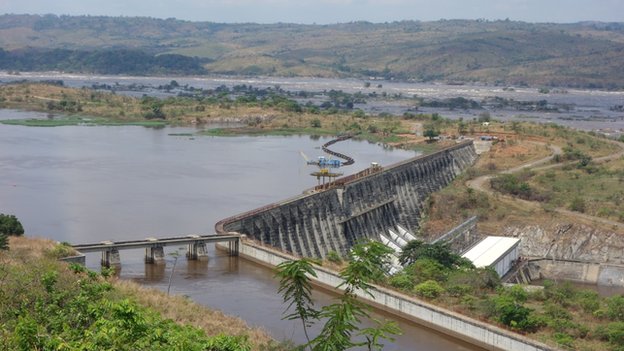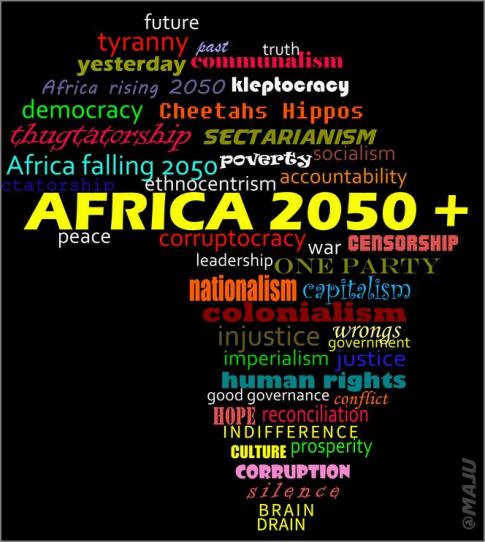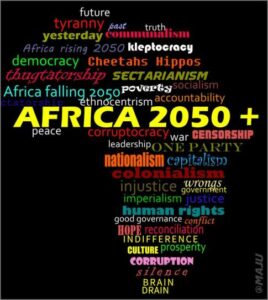- A Concluding Statement describes the preliminary findings of IMF staff at the end of an official staff visit (or ‘mission’), in most cases to a member country. Missions are undertaken as part of regular (usually annual) consultations under Article IV of the IMF's Articles of Agreement, in the context of a request to use IMF resources (borrow from the IMF), as part of discussions of staff monitored programs, or as part of other staff monitoring of economic developments.
- The authorities have consented to the publication of this statement. The views expressed in this statement are those of the IMF staff and do not necessarily represent the views of the IMF’s Executive Board. Based on the preliminary findings of this mission, staff will prepare a report that, subject to management approval, will be presented to the IMF Executive Board for discussion and decision.
Key issues
- Macroeconomic policy implementation under the Policy Support Instrument (PSI) has been broadly satisfactory, despite some slippages. The authorities have made progress on structural reforms, though more is needed in several areas.
- Infrastructure and oil sector investment are envisaged to lead to a recovery of growth to 6−6 ½ percent over the medium-term. Social spending can help make growth more inclusive.
- The government’s overall fiscal strategy remains appropriate. It requires strengthening public investment management and steady progress on domestic revenue mobilization. Monetary policy has successfully maintained core inflation on target.
- Ongoing efforts to enhance financial sector stability and development should lay the basis for a recovery of credit to the private sector.
Economic developments
1. Growth has slowed further, but is expected to gradually recover. [1] FY16/17 growth is projected at 3½ to 4 percent. The drought held back activity in the first part of the year. Private sector credit is an additional drag. Lastly, the slow execution of externally-financed public investment also contributes. With weather conditions improving and a recovery in credit, growth could accelerate to 5 percent in FY17/18.
2. The banking sector is well-capitalized, but credit growth is subdued. Most banks meet or exceed Basel III capital requirements and conform with the liquidity coverage ratio. With elevated NPLs, profitability in the sector has declined, and NPLs may rise further in the near-term. Banks have tightened lending standards, and credit growth has slowed.
3. Inflation has edged up, mainly reflecting the effects of the drought. Food price inflation rose from 5 percent year-on-year in September 2016 to 22 percent in April 2017. With this, headline inflation recorded 6.8 in April 2017. Core inflation stood at 4.9 percent, in line with the Bank of Uganda’s (BoU’s) 5 percent target.
4. The FY16/17 fiscal deficit is likely to be lower than anticipated, reflecting shortfalls in foreign financed development spending. Revenue collection should reach 14 percent of GDP, making welcome progress on domestic revenue mobilization. Domestically financed development spending is on track, but foreign financed development spending and construction of the two hydropower dams is expected to fall significantly short of earlier expectations. The supplementary budget brings current expenditures ahead of program projections, and the government should issue domestic securities to meet the resulting financing needs rather than rely again on BoU advances.
Performance under the PSI program
5. The authorities met all end-December quantitative assessment criteria and the majority of indicative targets through March 2017. Despite a minor underperformance on revenue collection, the overall deficit was lower than programmed at end-December 2016. However, the government issued US$26 million in guarantees for Uganda Development Bank which had not been anticipated at the time of the 7th review. The BoU achieved its inflation target and exceeded the target for reserves accumulation.
6. The authorities have made some progress on structural reforms. Two structural benchmarks have been met on time, three with delay, and the remaining five are pending. Most notably, the authorities moved forward the legislative agenda that will support Uganda’s exit from the Financial Action Task Force “grey” list—the laws now await President Museveni’s assent. The Ministry of Finance, Planning, and Economic Development published reconciled reports on the stock of outstanding arrears at end-June 2016 (3.2 percent of GDP). Pending reforms include sending the BoU Act Amendments to Parliament, publishing the report on end-December unpaid bills, and sending to cabinet a policy for regulating mobile money.
Macroeconomic policies
7. The FY17/18 budget accommodates infrastructure investment needs, but implies a very tight current expenditure envelope. The government aims to increase tax collection by another ½ percentage point, though specific measures still need to be firmed up. Capital spending is envisaged to increase over FY16/17, but this will require improved project implementation. The envelope for current spending is tight, and allocations for social spending are broadly unchanged relative to FY16/17 in Shilling-terms. Strong expenditure control is, therefore, needed to avoid a recurrence of arrears or the need for a supplementary budget. The overall deficit of 3.7 percent of GDP is financed through a mix of concessional and non-concessional external financing as well as domestic borrowing, and keeps public debt well on a sustainable path.
8. The BoU’s inflation targeting framework has served Uganda well. The BoU has appropriately reduced its policy rate by 600 bps since April 2016 to 11 percent. Headline inflation is projected to increase over the next few months, while core inflation would remain within the band of +/- 2 percentage points around the 5 percent target. Remaining on hold for a while would allow the BoU to confirm that effects from food price inflation remain limited.
Medium-term outlook
9. Growth should recover over the medium-term, but risks are tilted to the downside. Infrastructure and oil sector investments could yield growth of 6 to 6½ percent over the next three to four years. However, weak implementation of public investment and regional developments (conflicts, possible disruptions during upcoming elections), could undermine growth, as could a slowing of global trade. Uncertainty persists over when oil production will commence and the phasing of investment in the sector. The agricultural sector remains exposed to climate conditions and pest infestations. Tightening global financing conditions could hold back portfolio inflows. Lastly, cuts in aid flows would undermine the sustainability of spending, in particular in social sectors.
10. The government’s medium-term fiscal framework is anchored by the Charter of Fiscal Responsibility. With the scaling up of infrastructure investment, government debt would continue to rise and peak at 41 percent of GDP in FY19/20. Safeguarding debt sustainability requires continued domestic revenue mobilization and sound project implementation to realize the envisaged growth dividend. The recommendations from a recent IMF Technical Assistance report lay out a comprehensive strategy to strengthen public investment management. Adopting the projected debt trajectory as the fiscal anchor would guide fiscal policy to adjust to shocks and other unexpected developments. Local content requirements for government procurement are understandable, but need to be carefully designed to ensure quality and cost effectiveness.
Financial sector
11. Efforts to further strengthen financial sector stability are underway. Supervision needs to become more intrusive, scrutinizing banks’ reporting, and the BoU is appropriately focusing on banks’ risk management frameworks. Credit bureaus should look beyond loan repayments to other payment obligations to derive credit scores. We welcome the BoU’s work on developing several indicators to better monitor financial sector stability, and to potentially introduce counter-cyclical provisioning. The regulator could also consider widening the applicability of maximum loan-to-value ratios from mortgages denominated in foreign exchange to those denominated in Ugandan shillings.
12. The BoU is enhancing the financial market architecture. We welcome the introduction of a deposit facility to expand the BoU’s liquidity management toolkit. Work on a master repo agreement is under way that would facilitate banks’ liquidity management via the interbank market. The authorities should consider introducing a marginal lending and deposit facility to clearly separate liquidity management and emergency liquidity assistance.
External stability
13. Uganda’s external position is broadly consistent with fundamentals and desirable policies in 2016. The current account deficit is projected to temporarily increase over the next 5 years as infrastructure and oil sector investment ramp up further. Achieving the envisaged growth dividend of these investments is essential to maintaining external stability—just as for public debt sustainability. International reserves at end-December 2016 stood at US$3 billion (5¼ months of next year’s imports), above the adequacy level suggested by the IMF’s metric for credit-constrained economies. Going forward, the BoU can purchase reserves opportunistically and would meet the EAC convergence criterion of 4½ months of imports. The flexible exchange rate regime is serving Uganda well.
Inclusive growth
14. The authorities’ growth strategy focuses on large infrastructure projects. These are appropriately intended to tackle binding constraints, mostly in electricity and transportation. Diversification to boost growth remains a challenge that will become more complex with oil. EAC integration should further expand Uganda’s market access, stimulate foreign investment, and support business and job creation. Improving the business environment would allow the private sector to better leverage these opportunities. In addition, IMF studies show that income and gender equality are important drivers of sustainable growth. High-quality social spending as well as strengthening the social safety net can tackle poverty and support growth. In this regard, proposals under discussion to widen access to health insurance and retirement savings schemes are welcome. Emphasis on empowering women to be economically active is equally important. This includes, e.g., addressing obstacles to women accessing land or inheriting assets.
The mission met with State Minister of Finance for Planning Bahati, Permanent Secretary and Secretary to the Treasury Muhakanizi, Governor Tumusiime-Mutebile, Deputy Governor Kasekende, senior government officials, financial sector regulators, representatives of civil society, the private sector, academia, and development partners. The mission is grateful to the authorities for their warm hospitality, excellent cooperation, and open and constructive discussions.
[1] The fiscal year runs July to June.
Distributed by APO on behalf of International Monetary Fund (IMF).























